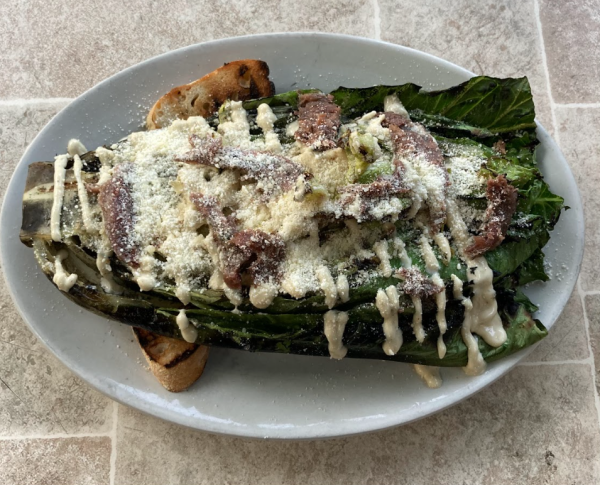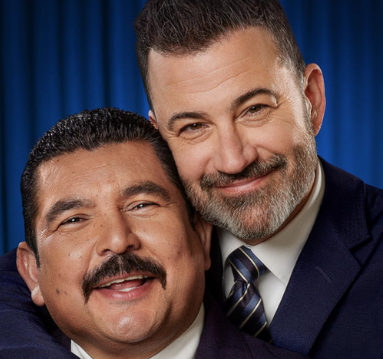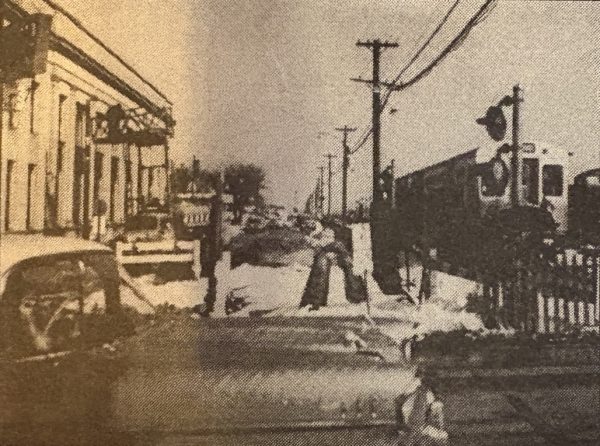HASS TAKE: Thank you, Trapeze: What you gave me and why it matters
Technically speaking, I was on Trapeze before I was a high schooler.
A few weeks prior to the start of my freshman year, I’d become set on joining the paper. By then, journalism had been cemented into me as my future career: I’d been composing stories for over a decade. I had dreams of owning the New York Times. From the age of six, I had idolized Miranda Priestly. I didn’t “want to” be a writer when I grew up – I was going to be a writer.
With that determination, I approached Trapeze staff supervisor Elizabeth Fox. The classroom was hot, empty save for us. She sat at her desk typing up an email.
I recall feeling self-conscious as my shoes clicked across the tile floor, and my breaths violated the silence between us. I wasn’t sure if she’d like me, or if I’d like her. I was prepared for one of those “Whiplash”-type horror-story teachers, I’ll admit – and what was almost scarier was how soon she proved me wrong.
When I introduced myself in a shaky voice and told her I was interested in writing for Trapeze “if that’s okay with you,” she spoke to me as if she’d known and loved me her whole life. If a little reluctant, she seemed thrilled I’d offered my abilities, despite the rumor that Trapeze hadn’t let an underclassman write in nearly 10 years.
That September, my first opinion piece ran in the paper.
Nearly five years since that day in Mrs. Fox’s classroom, my involvement with Trapeze has never faltered. After contributing for two years, I became a staffer – as soon as I was able. The following year, I was named our news/opinion section editor. I founded Newsworthy, our official podcast, where I created exclusive content to diversify information distributed to the OPRFHS community. This year, I was our sole columnist.
During my time on the paper, I not only made a difference. I saw one in myself.
In each interview, I found an increased curiosity I’d never felt. Here, I made my best friend of over a year. Where it hadn’t been before, I observed a pride in my work that I knew I’d deserved to feel much sooner. I find it funny now, looking back, that one of my memories most characterized by anxious uncertainty gave way to a four-year process of developing my boldness.
In loving my writing, I was taught to love myself. By telling my school’s stories, I wrote my own with an eloquence and a sense of poise far surpassing any I could have predicted in my future.
Because of the way Trapeze showed me the value of my experiences, and the opinions I gain from them, I came forward regarding my rape and repeated sexual abuse, in the aftermath of which I only found safety in that classroom. Some days, it felt like Room 306A was the one place in the world I could breathe without crying. In a way more metaphorical than literal, I drew the courage to save my own life from that place.
This is not an opinion piece. My sentences are longer than one would usually see in journalistic writing, and I’m not adhering to an AP (Associated Press) writing style. This is a final goodbye to the institution where I found my voice, the room where I found solace when I couldn’t go to advisory and act like everything was OK, the people – most of all, the woman – who taught me to believe in my writing – my power – myself.
This is a love letter to Trapeze and everything it made me: a million kindnesses I can’t repay in just the words in this article, but the stories I will go on to tell the world. This is my death as a high school editor, and my genesis as a journalist.
It’s the end of my beginning, and I couldn’t be happier or more grateful for where I had the privilege to start.
I have not edited this article. It is the first and last I have ever written with reckless abandon and a refusal to stress over details. I did not, as I have with so many before, plot out each paragraph with the utmost precision. Every single word was written on a whim, sprung straight from my head to the page, and because it is imperfect, it is the truest thing to come from me yet. It is as I am: flawed and messy and not quite professional. In Trapeze I learned I deserve to be loved not in spite of, but with, those qualities. So does my writing, because again: this is not an article. And love like the one I feel for Trapeze doesn’t need to be pretty, as long as it is true.
So often, I heard things like “We have a newspaper?” “I just throw those out when you guys hand them out,” “Nobody reads the paper.” With this last one often followed the question “Why bother?”
One day you will come to see the value of real-world reporting on a broader scale (despite the grim future of print newspapers), and you’ll see I was a small part of something that matters to the world – but it doesn’t just have to matter to the reader. Someone wrote the story you might not bother to read, and it doesn’t need to reach you for it to be important. Sometimes, journalism is for the journalist.
My writing may not have changed your life or your mind, but it spun mine upside down for the better. More than that, it saved me. Trapeze gave me something no mindless criticism could ever take away, and I know it has done the same for those before me. It won’t stop when I’m gone.
Trapeze matters to me not just because it gave me something. It matters because I am one of thousands who found a home in writing, and who learned how to change lives with it. It matters because without it, so many students would never see the power of a pen on paper – and perhaps, though we’ll never know for sure, Hemingway was once in my shoes.
High school journalism has always been where power is found and voices grow loud. Mine is one of many that will never be silenced again, and I use its utmost volume to say this.
I love you, Trapeze. I love you, Newsworthy. I love Aidan, and Seth, and Finn, and Delaunay, and everyone I’ve interviewed. I love all the editors that came before me, the way I love those in whose hands the future of my school’s beloved newspaper lies. I am utterly and wholly enamored with high school journalism.
My story isn’t unique. In almost every school across the country lives an organization like Trapeze, that not only touches but fondles the lives of so many young adults like me. These publications take soft-spoken, jittery freshmen and craft them – gently, kindly, lovingly – into voices that swell with bravery, who never waver in the face of injustice or mistruth.
In its own being, a high school newspaper doesn’t change the world. It is where new generations of journalists begin to see the strength of their own words, not just as writers but as people.
As the person I was five years ago, I loved Trapeze. My current self feels the same. Wherever you’ll find me in twenty years, know nothing will have changed. In my heart always lives a fierce gratitude toward this little publication, one that burns with all the passion you see in the voice I found here.
I love you, Trapeze, until the end of time. This is my goodbye for now.





